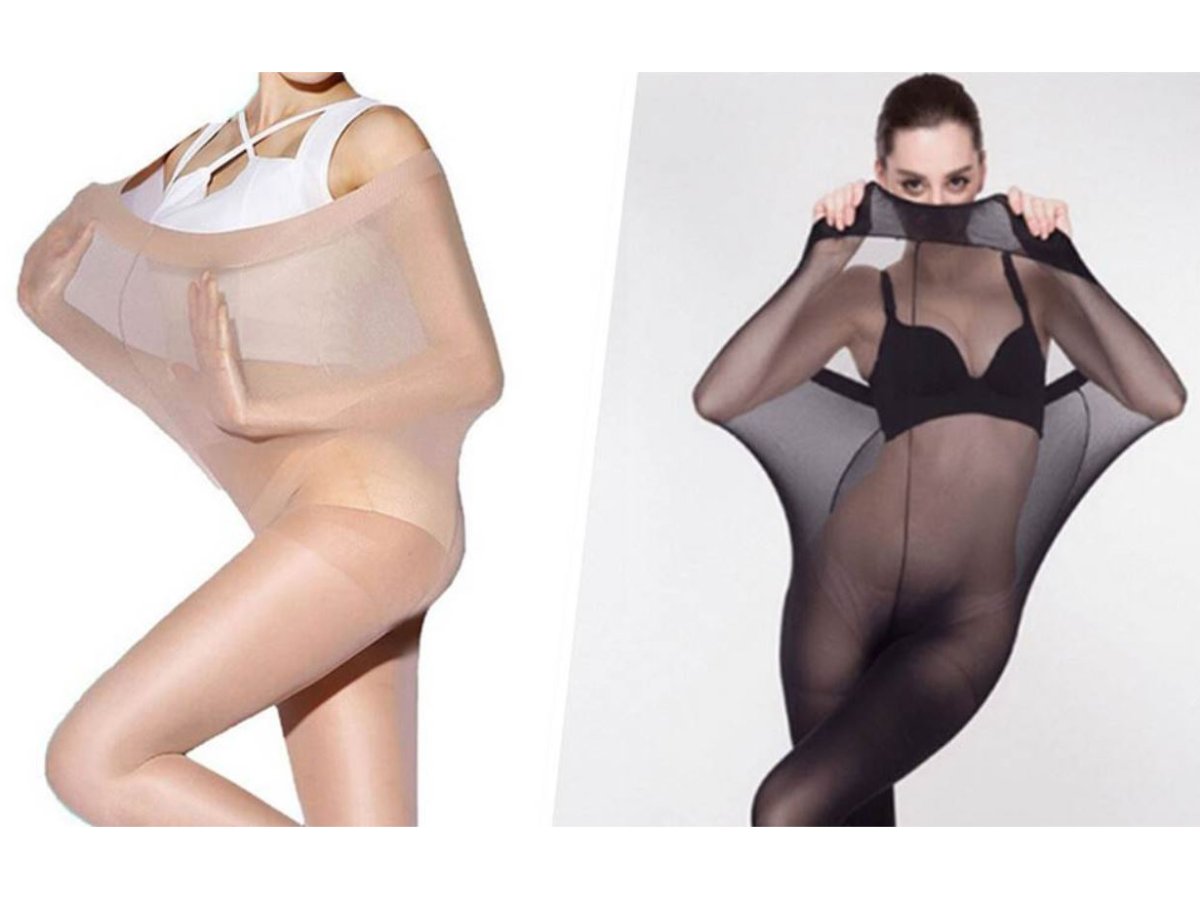Twitter users have been whipped into a frenzy over the last couple of days when news broke that a shopping site used skinny models to advertise plus-size tights. What’s worse, it doesn’t seem the images were ever intended to sell the product the site is advertising.

WATCH BELOW: Plus-size model captures moment she confronts body shamer on plane

Wish, a San Francisco-based shopping app that sells unbranded clothing, accessories, electronics and various other household items directly from China, posted a listing for plus-size hosiery that features a skinny model wearing the tights and pulling the waistband over her torso to indicate how much they stretch. But as some eagle-eyed observers have noted, the image used is actually one for “magical stockings,” an item that uses a resilient nylon material to prevent rips.
What’s made Twitter users mad is the idea that Wish felt they couldn’t sell an item marketed to plus-size women using a plus-size model.
What this all speaks to is what Aisha Fairclough, co-founder of Body Confidence Canada, a body diversity advocacy group, calls fat phobia.
“People have a fear of seeing plus-size bodies in clothes,” she tells Global News. “Even with some plus-size companies, the models they use are an idealized version of a plus-size body — they’re like a slightly curvier Barbie doll.”
She says the problem is that there’s no real body diversity being featured in the mainstream, especially in clothing ads, which works against brands, since research has proven that women want to be able to envision themselves in the clothing they’re looking at.
“Representation matters. How can you buy clothes if you can’t imagine what they’ll look like on your body?” Fairclough asks.
While it’s true that any woman who doesn’t look like a model (plus-size or otherwise) could say the same, she points out that the stigma attached to the term “plus-size” makes this extra problematic.
READ MORE: ‘Too much’ and ‘not enough’: The double standard of plus-size modelling
“There’s a big difference between someone smaller being left out versus someone bigger being left out because the latter speaks to a fear of fat,” she says. “This is why designers have refused to dress actresses like Melissa McCarthy and Danielle Brooks because they don’t want to see their clothes on plus-size bodies.”
Even within the plus-size community, she says the conversation needs to shift towards body diversity, since, at the moment, the going perception of a plus-size woman is model Ashley Graham, who despite not being a size zero, still has unattainable measurements that aren’t representative of most women.
“When we talk about plus-size, most women think about Ashley Graham, but the average woman doesn’t look like her. Even with the emergence of more plus-size models, they’re still leaving a lot of women out of the conversation. And if you include race, there’s a plethora of women who are excluded.”
There are some companies that have broadened their perception of plus-size — she cites Eloquii, Penningtons and Addition Elle among them — but there’s still a lot that needs to be done to include all shapes and sizes in the fashion conversation. Most importantly, however, it’s time to do away with these “insulting” images of skinny models wearing clothing meant for larger women.
“We’re angry, frustrated and tired of it. The Wish ad is absurd and it looks like a joke. It’s about time all brands started to embrace body diversity — we are being left out of the consumer market and we all want to see ourselves out there.”






Comments